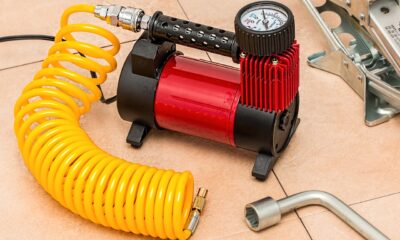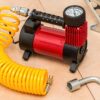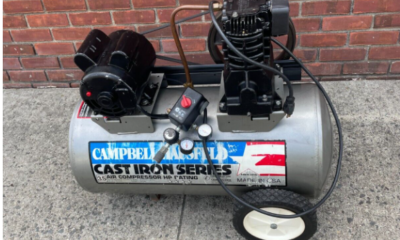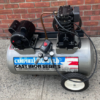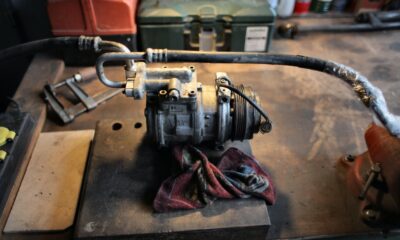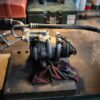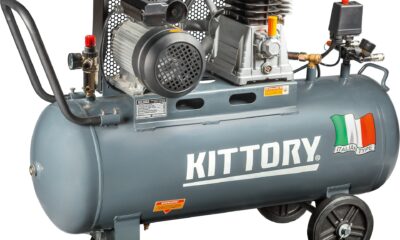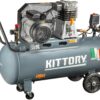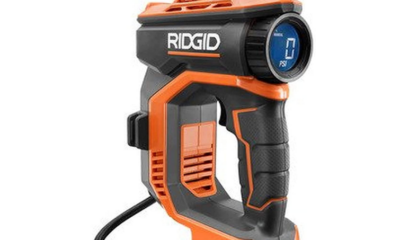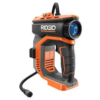Air compressors are useful for various applications, but their loud noise can be a nuisance. Fortunately, there are several steps you can take to make your air compressor quieter. This article will explore some practical tips and tricks to help you reduce the noise level and enjoy a more peaceful working environment.
Let’s find out the ways.
Ways To Make Air Compressors Quiet
Here are simple steps to make the air compressors quiet:
- Constructing a sound enclosure around the air compressor can further reduce noise levels. Build a box that covers the compressor using materials like plywood or medium-density fiberboard (MDF).
- Attaching a silencer or muffler to these ports can significantly reduce noise. Silencers are designed to create obstructions or redirect airflow, reducing the intensity of sound waves.
- Placing the compressor on a vibration-damping mat or pad. These specialized materials absorb vibrations and prevent them from transferring to the floor or surrounding structures.
- Soundproofing materials such as acoustic foam or mass-loaded vinyl (MLV) can be attached to the inside of the compressor’s enclosure.
- Soundproofing the surroundings can also help create a quieter working environment. Install acoustic panels on the walls, use heavy curtains or soundproof blinds for windows, and add rugs or carpeting to absorb sound reflections.
- Install the compressor in another room.
Reasons For The Noise Coming From Air Compressors
There are several reasons why air compressors can be noisy:
- When the air compressor draws air through its intake port, it passes through filters and valves. The intake process can create noise as the air rushes through these components and encounters obstructions.
- Most air compressors use an electric motor to power a piston or a rotary screw mechanism. The motor generates mechanical vibrations and produces sound as it rotates or moves the piston.
- After the air is compressed, it is released through the compressor’s discharge or exhaust port. This process involves the rapid expulsion of high-pressure air, which can create a loud noise as the air rushes out of the system.
- Air compressors generate vibrations due to the motor and mechanical components in motion. These vibrations can resonate and amplify noise if the compressor is not adequately isolated or if the surrounding surfaces and structures resonate with the vibrations.
- The design and construction of the air compressor can also influence the noise level it produces. The materials used and the component positioning also play a role.
Conclusion
There are many reasons for the compressor to become noisy, but all that reasons also have solutions. Implementing the tips mentioned can significantly reduce noise levels and create a more pleasant working environment.
FAQs
1. Do quiet air compressors exist?
Yes, there are air compressors that function quietly. To name a few air compressors one type is the scroll air compressor, and it does not create much noise.
2. How loud are 70 decibels? Can it damage the ears?
Noise levels of 70 dB have a moderate sound level and are not considered damaging to human hearing.
3. How many dB is an ultra-silent and quiet air compressor?
While ultra-silent air compressors run at 60 dB, quiet air compressors work in the 70 to 80 dB range.













